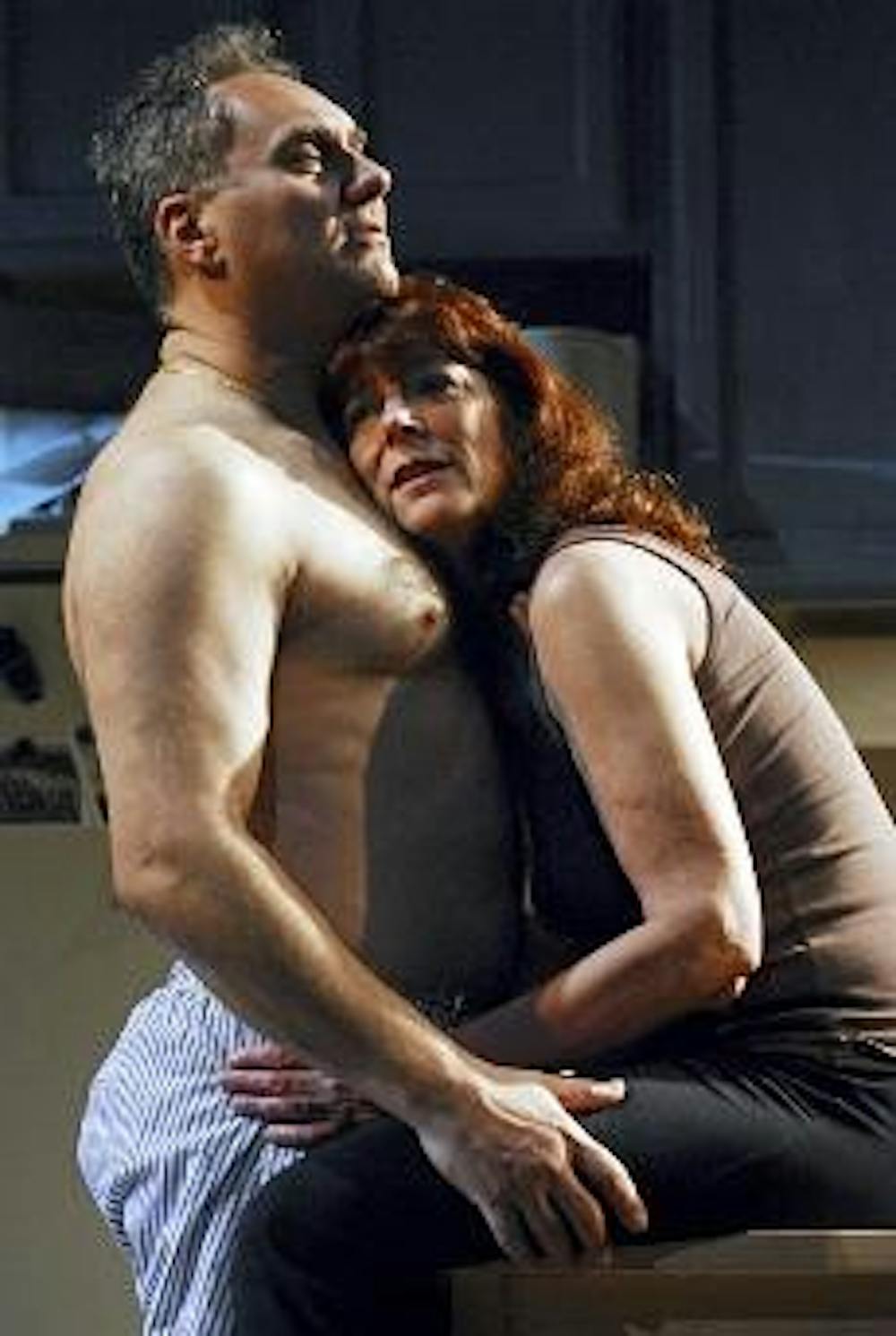Thinking about people your parents' age getting it on isn't likely a college student's favorite mental image. For the sake of Terrence McNally's nontraditional love story, "Frankie and Johnny in the Clair de Lune," AU students should consider making a refreshing exception.
"Frankie and Johnny" tells the story of Johnny, an overweight, middle-aged short-order cook in New York City, who goes home with Frankie, a similarly situated waitress in the diner where he works, for a one-night stand. The play depicts a three-hour period during the pair's night - and early morning -together, beginning with noisy sex, middling out with Frankie trying her best to push Johnny away despite his professions of affection and ending with the couple brushing their teeth while listening to the radio, having decided to give this thing called love a go.
Perhaps the most redeeming thing about "Frankie and Johnny" is its willingness to embrace and revere reality. Most love stories are glossy tales of young and beautiful people who are destined from birth to live together happily ever after. In real life, though, this is often not the case. People are scarred by divorce, domestic abuse, loneliness and their own naivete before finding a meaningful relationship, and Frankie and Johnny are no exception.
Played more than convincingly by Kate Buddeke and Vito D'Ambrosio, the play's only characters don't look like pages from a fashion magazine. Complex, vulnerable, self-conscious, in average shape and searching for meaning and connection, there is little that separates them from most people alive.
Buddeke's Frankie is emotionally closed-off and weary from past relationship struggles; her scratchy voice betrays the effects of her now-over nicotine addiction and, expecting little from men, she initially can't understand why Johnny is enamored with her body and personality. D'Ambrosio's Johnny is brash, honest and willing to wear his heart on his sleeve, convinced that Frankie could see she's meant for him if she lowers her armor.
But, as Frankie says, "Everybody's got armor. If they didn't, they'd be dead." The ensuing emotional give-and-take, and the actors' ability to engage an audience for a full two hours and then some, interrupted only by a radio announcer (voiced by Stephen Schnetzer), is remarkable.
Arena's set complements the production's realism. The entire play unfolds in Frankie's efficiency apartment, where she sleeps on a fold-out couch and has a kitchen small enough to hit home for most apartment-dwelling collegiate types. The magic, though, is in the details. When Frankie turns on the harsh overhead light, Johnny winces - but then can flick on several small lamps for mood lighting. When Frankie wants something to eat, Johnny can fire up the working gas stove and retrieve ingredients from the refrigerator. And as the digital alarm clock by Frankie's bed keeps track of the coming morning, the ambient stage lighting rises accordingly.
Overall, the play's message about love at any age - and its endurance despite the fear, inadequacy and silly psychological barriers that keep people apart - is a must-see for anyone with complicated views on dating and companionship, as well as anyone who finds deeper meaning in human relationships and how people can help each other overcome past pain and hardship. After all, we won't all end up as underwear models, but we'll always get another chance at true love.
"Frankie and Johnny in the Clair de Lune" plays through April 8 in Arena Stage's Kreeger Theater. It contains nudity, adult themes and strong language.





